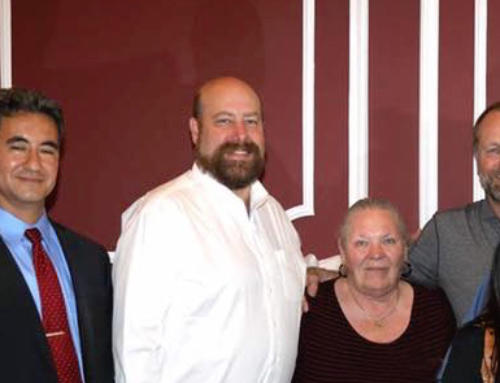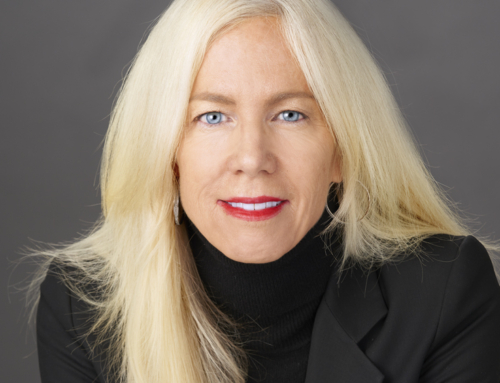Attorney Charles Stec recently prevailed at an arbitration on behalf of his general contractor client in connection with a residential construction project.
During construction, a dispute arose between the owner and general contractor as to payment. The owner terminated the contract, retained a new contractor, and then demanded arbitration, seeking reimbursement of the costs of completing the project. The general contractor counter-claimed to recover its fees for work completed prior to contract termination.
At arbitration, the owner argued that the contract should be interpreted as a cost-plus contract and that the owner was therefore entitled to reimbursement of a portion of the sums paid prior to termination. However, W&D argued that the contract was a fixed-fee contract and that it had been wrongfully terminated by the owner, and the arbitrator agreed. The arbitrator awarded W&D’s client payment for all work completed prior to termination, as well as its attorney’s fees and arbitration costs. Mr. Charles Stec is a lawyer at Weil & Drage, joining the firm five years ago after a 15-year career as a licensed general contractor in California. He can be reached at cstec@weildrage.com.
Partner Brian Roteliuk and Attorney Charles Stec recently prevailed on a Motion for Summary Adjudication, in which the Court held that a subcontractor has a duty to defend W&D’s client, a structural engineer.
This extensively-litigated case arose out of alleged construction and design defects at a parking garage. The subcontract agreement between the general contractor and the subcontractor required that the subcontractor “defend, indemnify and hold harmless the Owner, Contractor, Architect or Design Consultant, or any of their respective consultants, … against claims, damages, losses and expenses … arising out of, relating to, or resulting from performance of the Subcontract Work ….”
Mr. Roteliuk and Mr. Stec successfully argued that W&D’s structural engineering client was a subconsultant of the project’s Architect entitled to defense and indemnity under the subcontract agreement. They were further able to establish by way of expert testimony and reports that the claims asserted against the structural engineer arose out of the work of the subcontractor. Ultimately, the Court ruled that, as a matter of law, the subcontractor had a duty to defend W&D’s structural engineer client. Mr. Brian Roteliuk is a partner at Weil & Drage and has been with the firm for 15 years. He can be reached at broteliuk@weildrage.com. Mr. Charles Stec is a lawyer at Weil & Drage, joining the firm five years ago after a 15-year career as a licensed general contractor in California. He can be reached at cstec@weildrage.com.
W&D Partner Gary Jacobsen recently participated in the Risk & Liability Panel Discussion at the CalGeo Annual Conference. The highly-anticipated discussion focused upon a geotechnical case study, examining the technical, liability, and legal issues impacting geotechnical engineers today.
The CalGeo Annual Conference is the premier event of the California Geotechnical Engineering Association, a professional organization focusing on issues affecting consulting geotechnical professionals. Mr. Gary Jacobsen is a partner in W&D’s Northern California office. He is a member of the American Board of Trial Advocates and a seasoned trial lawyer with more than 25 years of experience representing design professionals and contractors in complex construction claims and litigation. Mr. Jacobsen can be contacted at gjacobsen@weildrage.com.
The pandemic has impacted how we all do business, and nowhere is that more noticeable than in the courts. While courts were fairly quick to transition the day-to-day handling of their calendars to audio and videoconferencing platforms, the conduct of civil jury trials remains an ongoing challenge, with courts attempting to balance considerations including safety and due process. Many courtrooms are not large enough to accommodate a socially distanced jury panel, and, in some instances, larger courtrooms have been dedicated to criminal and juvenile matters. In addition, the number of jurors reporting for jury duty has declined in some jurisdictions.
Each jurisdiction has a different, often evolving, means of handling civil jury trials. The Orange County Superior Court has been steadily conducting jury trials in dedicated courtrooms since June 2020. The Los Angeles Superior Court, on the other hand, only recently resumed civil jury trials. Cases that are ready for trial all report to a single department and then are assigned out to the largest available courtroom. Many departments in Los Angeles are asking that the parties stipulate to fewer than twelve jurors in the event that one or more jurors may need to be excused during the course of the trial. In Riverside County, the Superior Court had implemented a program for remote jury trials, with the jurors appearing in court in person only once to be sworn in. In Maricopa County, the courts have limited the number of civil jury trials that may be conducted at one time, in order to allow for social distancing of jurors and litigants.
A subpoena is a document issued by the court, or under its authority, that requires a non-party to produce documents or appear to give testimony. Responding to a subpoena can be a significant undertaking, particularly if it involves the production of voluminous documents, emails or other forms of electronic records.
If a design professional is served with a subpoena, its first step should be to notify its professional liability insurance carrier. Many professional liability policies have coverage to assist in responding to subpoenas. In some cases, a carrier may appoint counsel to assist the design professional in (i) preparing the design professional to give deposition or trial testimony, and/or (ii) identifying and producing documents in response to a subpoena for records.
In federal court, the cost of responding to a subpoena is usually borne by the subpoenaed party. In other jurisdictions, some of the costs can be transferred to the party that issued the subpoena. In California, the party that issued the subpoena is required to pay the costs of responding to the subpoena, but not associated attorney’s fees.
W&D is often successful in recovering, on behalf of its clients, the costs of responding to a subpoena. Recoverable costs may include the costs of processing electronic discovery, as well as reimbursement for time clerical staff spends on efforts to respond to a subpoena. When a significant volume of records, or an entire project file is requested, it is often helpful to make an initial assessment of the volume of data at issue and obtain a quote from an e-discovery vendor of the anticipated costs of processing the data. When presented with an estimate for data processing costs up front, the party who issued the subpoena will often narrow and focus its requests rather than pay the costs of responding to its own overbroad subpoena.










